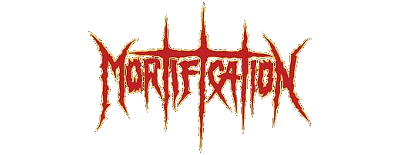Track List
01) Nocturnal
02) Terminate Damnation
03) Eternal Lamentation
04) Raise the Chalice
05) Lymphosarcoma
06) Scrolls of the Megilloth
07) Death Requiem
08) Necromanicide
09) Inflamed
10) Ancient Prophecy
11) Time Crusaders
12) Inflamed
13) Destroyer Beholds
01) Nocturnal
02) Terminate Damnation
03) Eternal Lamentation
04) Raise the Chalice
05) Lymphosarcoma
06) Scrolls of the Megilloth
07) Death Requiem
08) Necromanicide
09) Inflamed
10) Ancient Prophecy
11) Time Crusaders
12) Inflamed
13) Destroyer Beholds
6:11
6:19
6:30
4:48
6:05
4:29
5:11
4:59
3:27
11:45
5:54
3:38
3:27
Data Complete 80%
Total Rating
Total Rating
Back Cover![]()
CD Art
3D Case
3D Thumb
3D Flat
3D Face
3D Spine
First Released
![]() 1992
1992
![]() Death Metal
Death Metal
![]() ---
---
![]() Metal
Metal
![]() ---
---
![]() ---
---
![]() Album
Album
![]() 0 copies
0 copies
Album Description
Available in:
Scrolls of the Megilloth is the second studio album by Christian extreme metal band Mortification. The band's most famous release, this album is full-on death metal, with the thrash metal roots barely showing, and possibly their most extreme album to date. According to Allmusic, the album garnered the band some attention from the heavy metal underground and contains some of the most frightening vocals ever recorded. In 2010, HM Magazine ranked Scrolls of the Megilloth number 17 on the Top 100 Christian Metal Albums of All Time list with Van Pelt stating that Though the band has been living it down ever since, this album raised the standard of Christian grindcore to almost unattainable levels.
Scrolls of the Megilloth was recorded at Studio RBX, Richmond, Melbourne, and mixed at Toybox Studios, Northcore, Melbourne. The album was produced by Doug Saunders. Mortification's line up consisted of the bassist-vocalist Steve Rowe, guitarist Michael Carlisle, and drummer Jayson Sherlock. Both Carlisle and Sherlock did some background vocals, and Sherlock played lead guitar on the last song "Ancient Prophecy" because Carlisle was a more experienced rhythm guitarist than lead guitarist, therefore the album does not contain guitar solos.
The lyrics on Scrolls of the Megilloth are as extreme as the music, dealing with the common themes of death metal such as death, violence, occult, and horror from a Christian point of view: On "Eternal Lamentation", the ungodly scream their pain in the fiery pits of hell; "Terminate Damnation" is about spiritual warfare against evil and moral impurity, and "Necromanicide" warns against communicating with the dead through spiritism because "only demons answer their call". The title "Scrolls of the Megilloth" is a term in the Old Testament that means The Five Scrolls (Five Megillot): Ruth, Esther, Song of Solomon, Lamentations, and Ecclesiastes. The song deals with the purposes of these books. According to the album liner notes, Steve Rowe studied at a Bible college a year before the album was recorded and he learned that these books were read at feasts and celebrations of significant Jewish dates. Rowe writes: "When we read 2 Timothy 3:16 we realised that all scriptures are there for a purpose and should all be studied to guide us."

User Album Review
None...
External Album Reviews
None...
User Comments


Available in:
Scrolls of the Megilloth is the second studio album by Christian extreme metal band Mortification. The band's most famous release, this album is full-on death metal, with the thrash metal roots barely showing, and possibly their most extreme album to date. According to Allmusic, the album garnered the band some attention from the heavy metal underground and contains some of the most frightening vocals ever recorded. In 2010, HM Magazine ranked Scrolls of the Megilloth number 17 on the Top 100 Christian Metal Albums of All Time list with Van Pelt stating that Though the band has been living it down ever since, this album raised the standard of Christian grindcore to almost unattainable levels.
Scrolls of the Megilloth was recorded at Studio RBX, Richmond, Melbourne, and mixed at Toybox Studios, Northcore, Melbourne. The album was produced by Doug Saunders. Mortification's line up consisted of the bassist-vocalist Steve Rowe, guitarist Michael Carlisle, and drummer Jayson Sherlock. Both Carlisle and Sherlock did some background vocals, and Sherlock played lead guitar on the last song "Ancient Prophecy" because Carlisle was a more experienced rhythm guitarist than lead guitarist, therefore the album does not contain guitar solos.
The lyrics on Scrolls of the Megilloth are as extreme as the music, dealing with the common themes of death metal such as death, violence, occult, and horror from a Christian point of view: On "Eternal Lamentation", the ungodly scream their pain in the fiery pits of hell; "Terminate Damnation" is about spiritual warfare against evil and moral impurity, and "Necromanicide" warns against communicating with the dead through spiritism because "only demons answer their call". The title "Scrolls of the Megilloth" is a term in the Old Testament that means The Five Scrolls (Five Megillot): Ruth, Esther, Song of Solomon, Lamentations, and Ecclesiastes. The song deals with the purposes of these books. According to the album liner notes, Steve Rowe studied at a Bible college a year before the album was recorded and he learned that these books were read at feasts and celebrations of significant Jewish dates. Rowe writes: "When we read 2 Timothy 3:16 we realised that all scriptures are there for a purpose and should all be studied to guide us."
User Album Review
None...
External Album Reviews
None...
User Comments

No comments yet...


